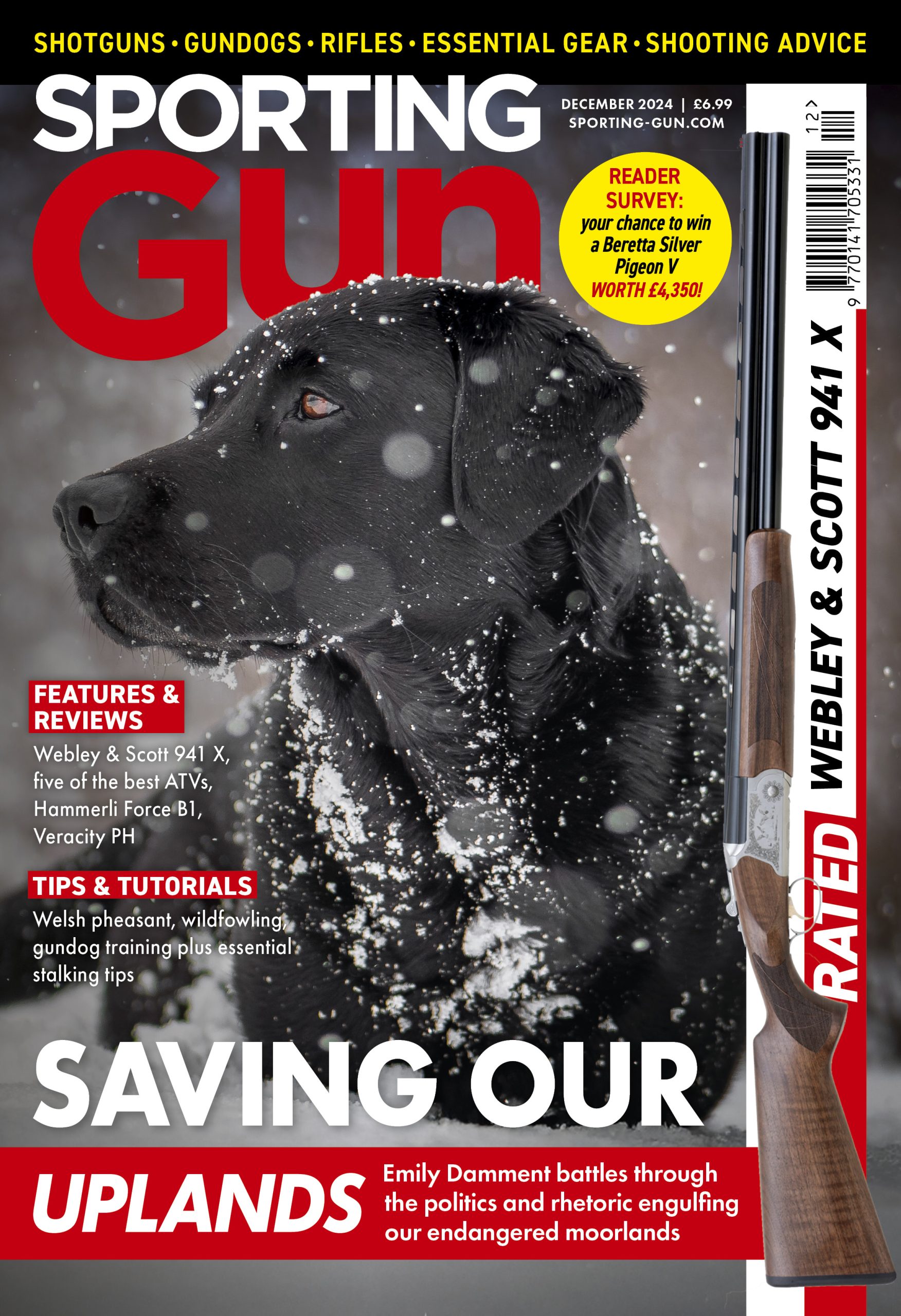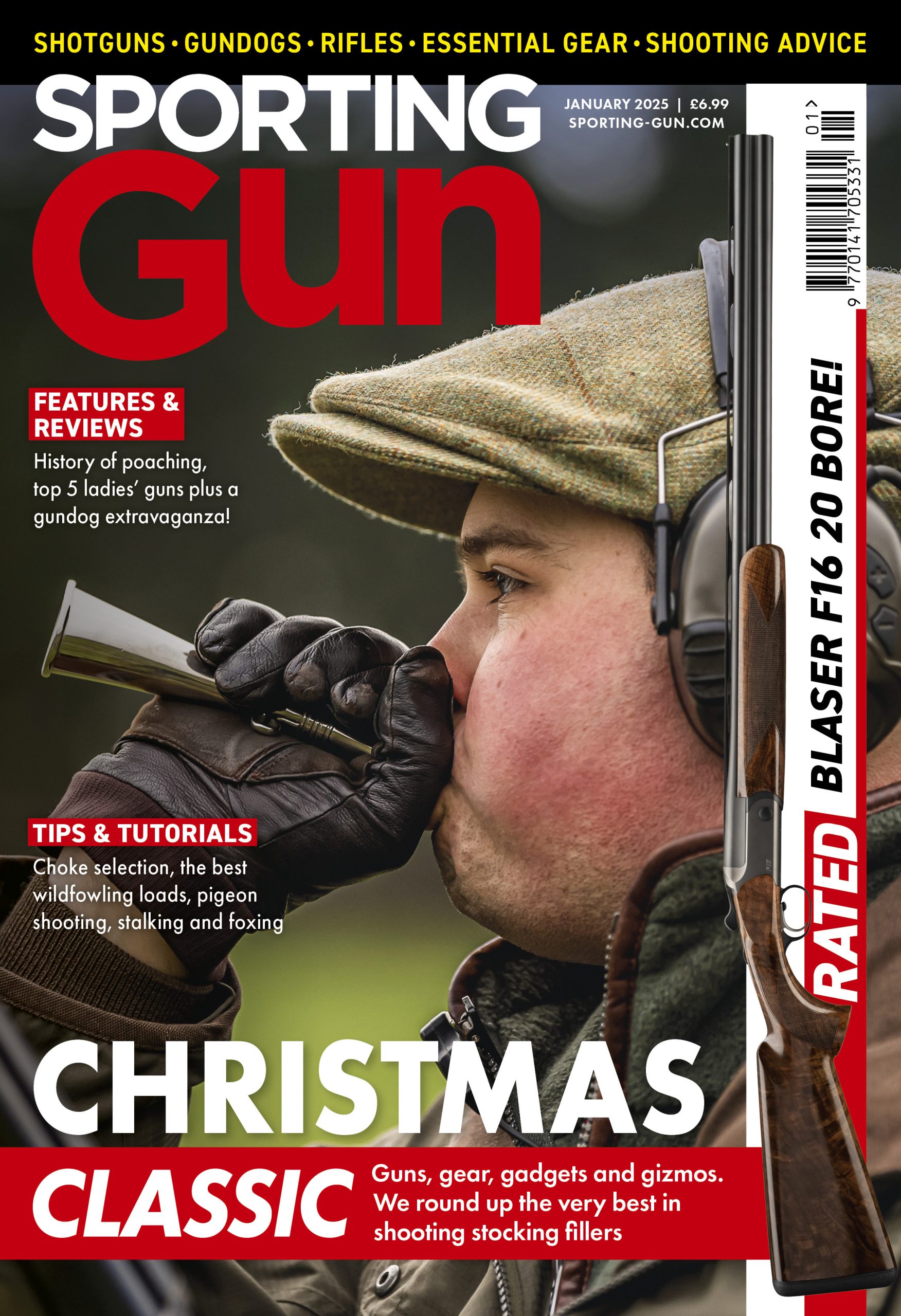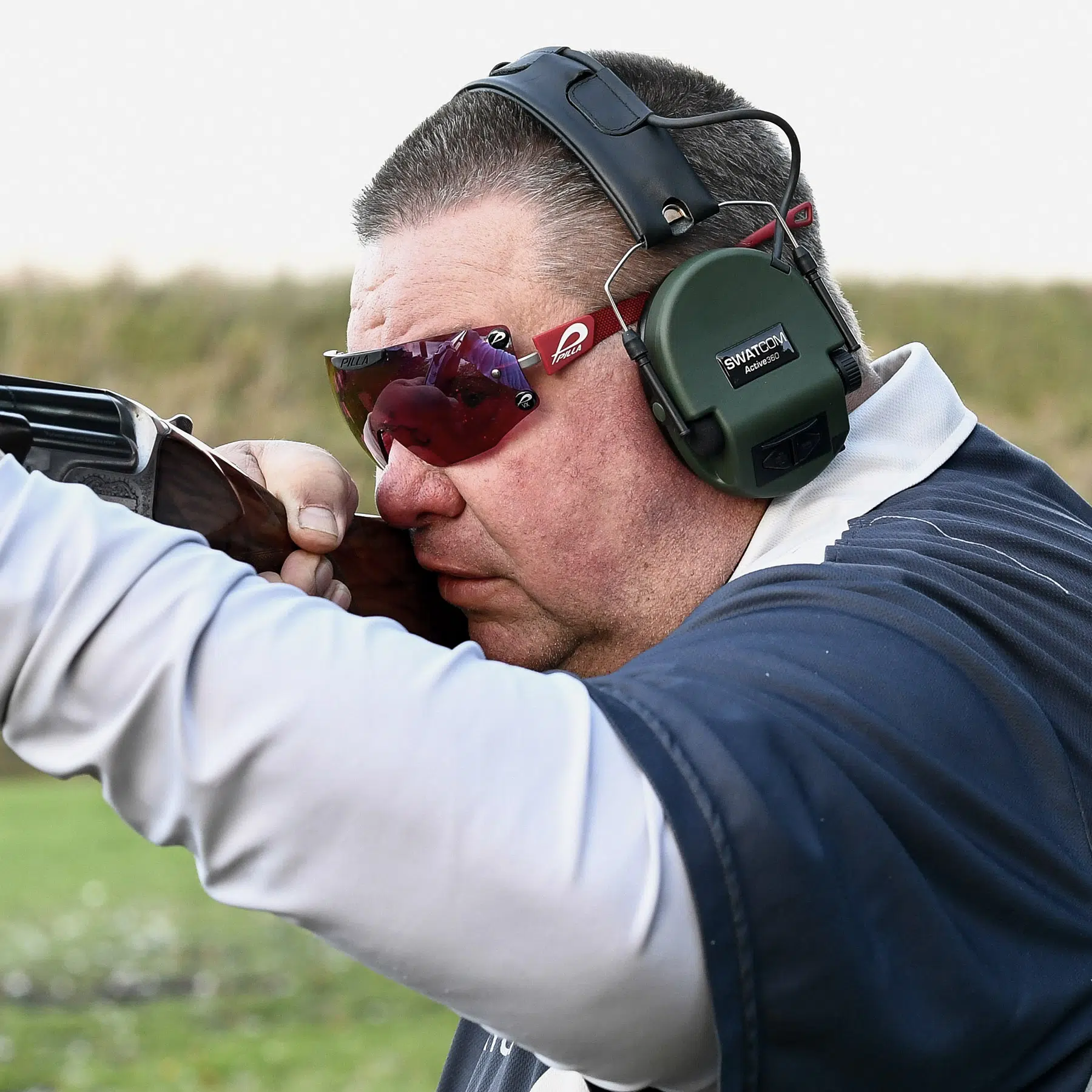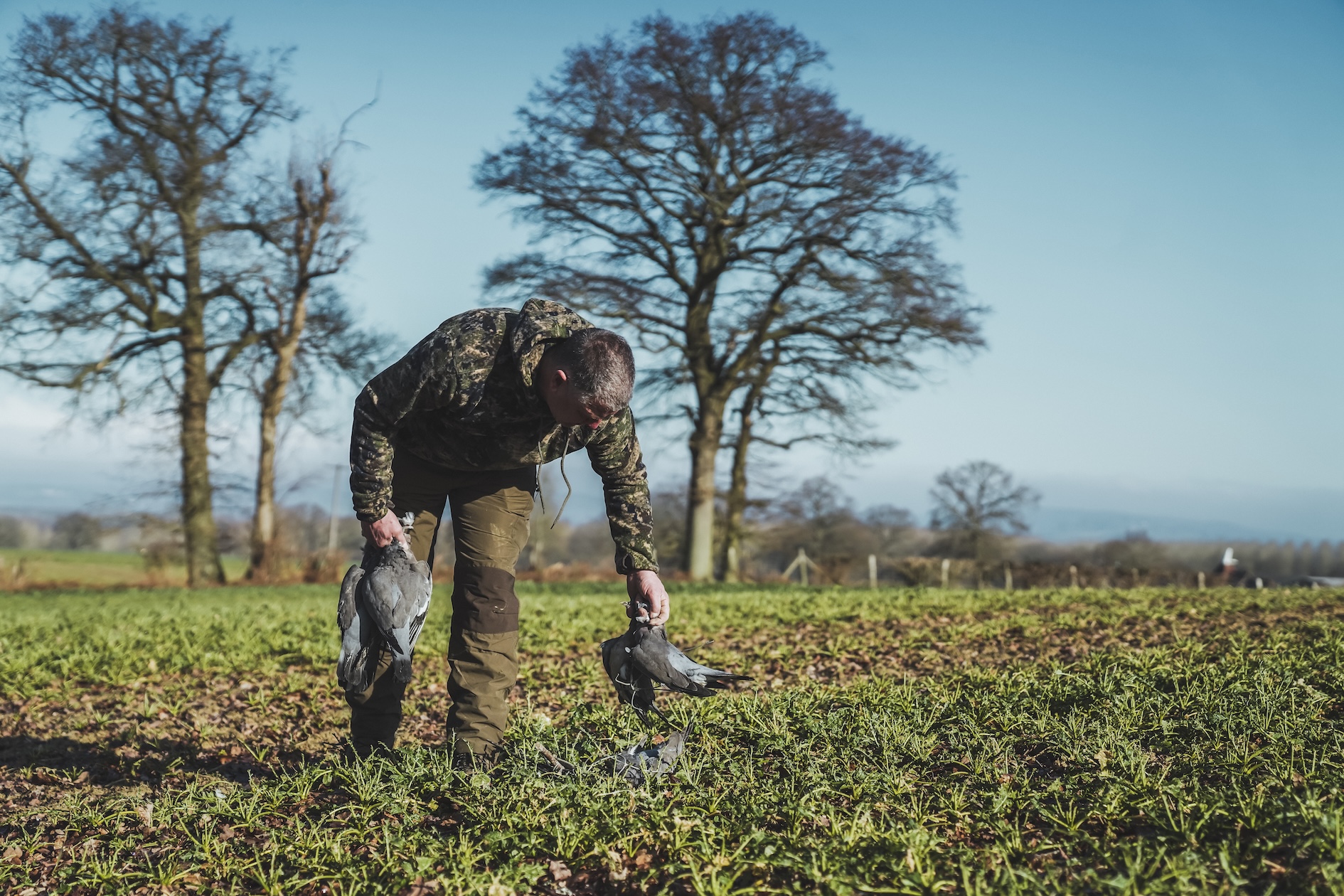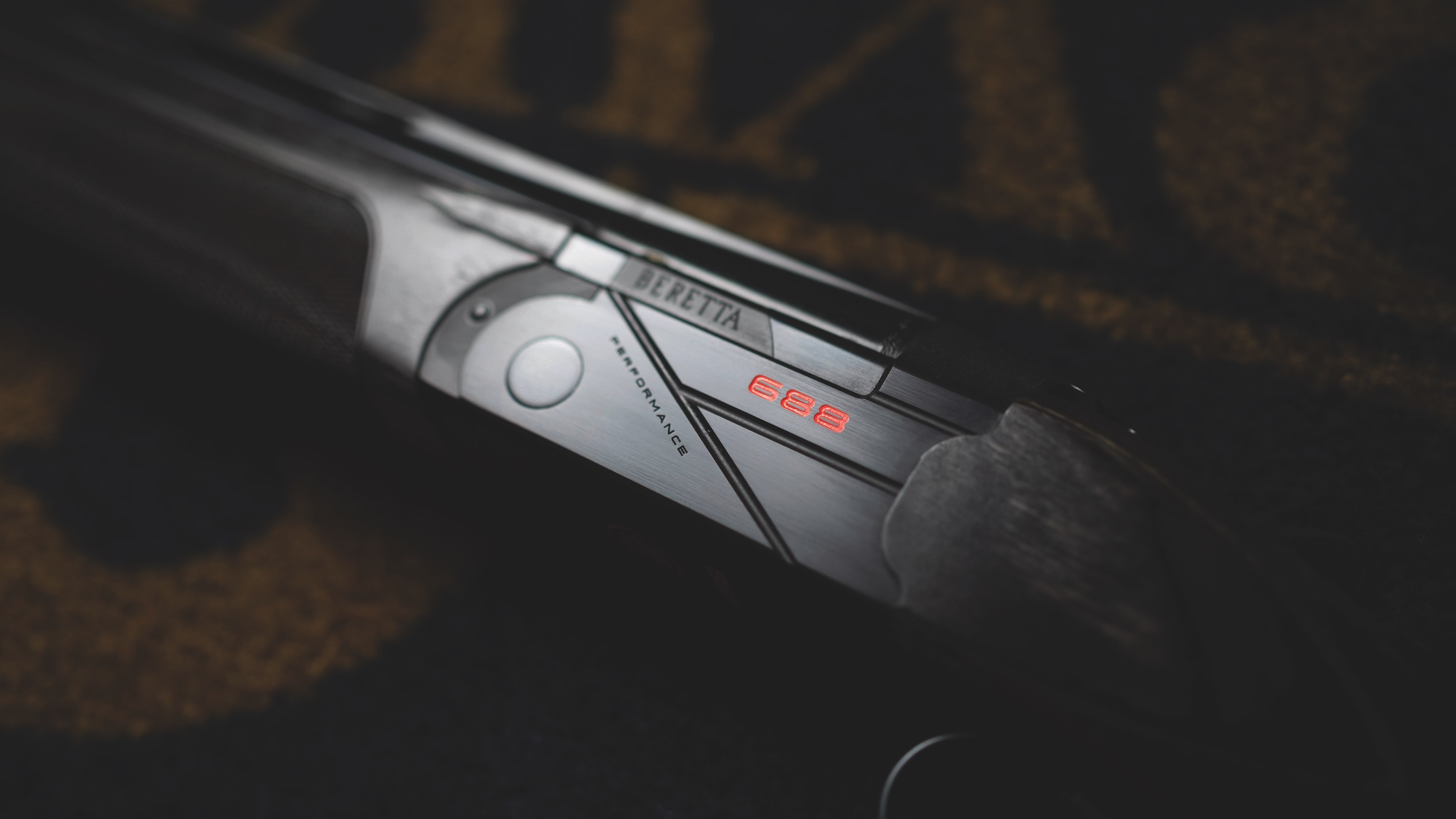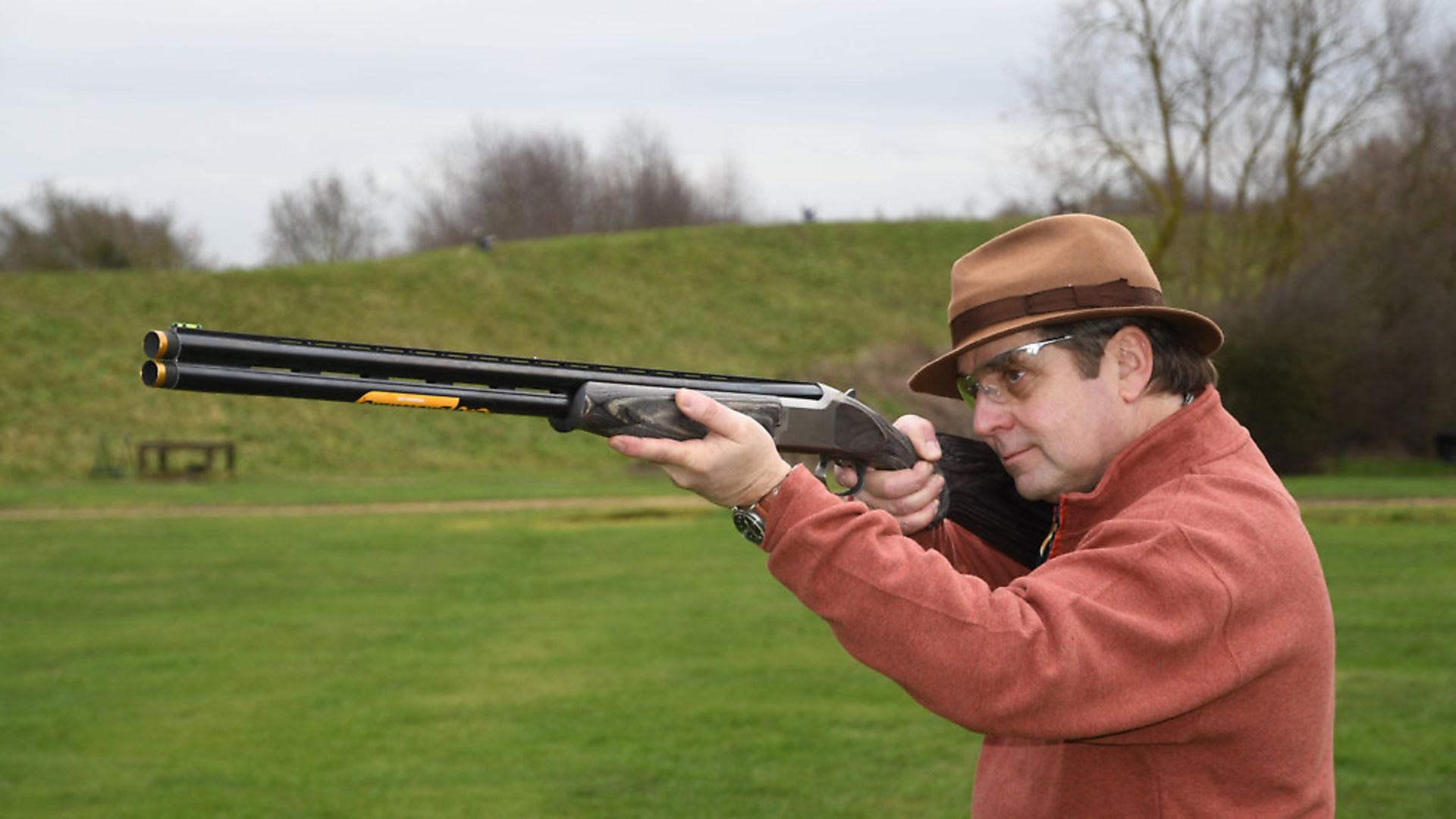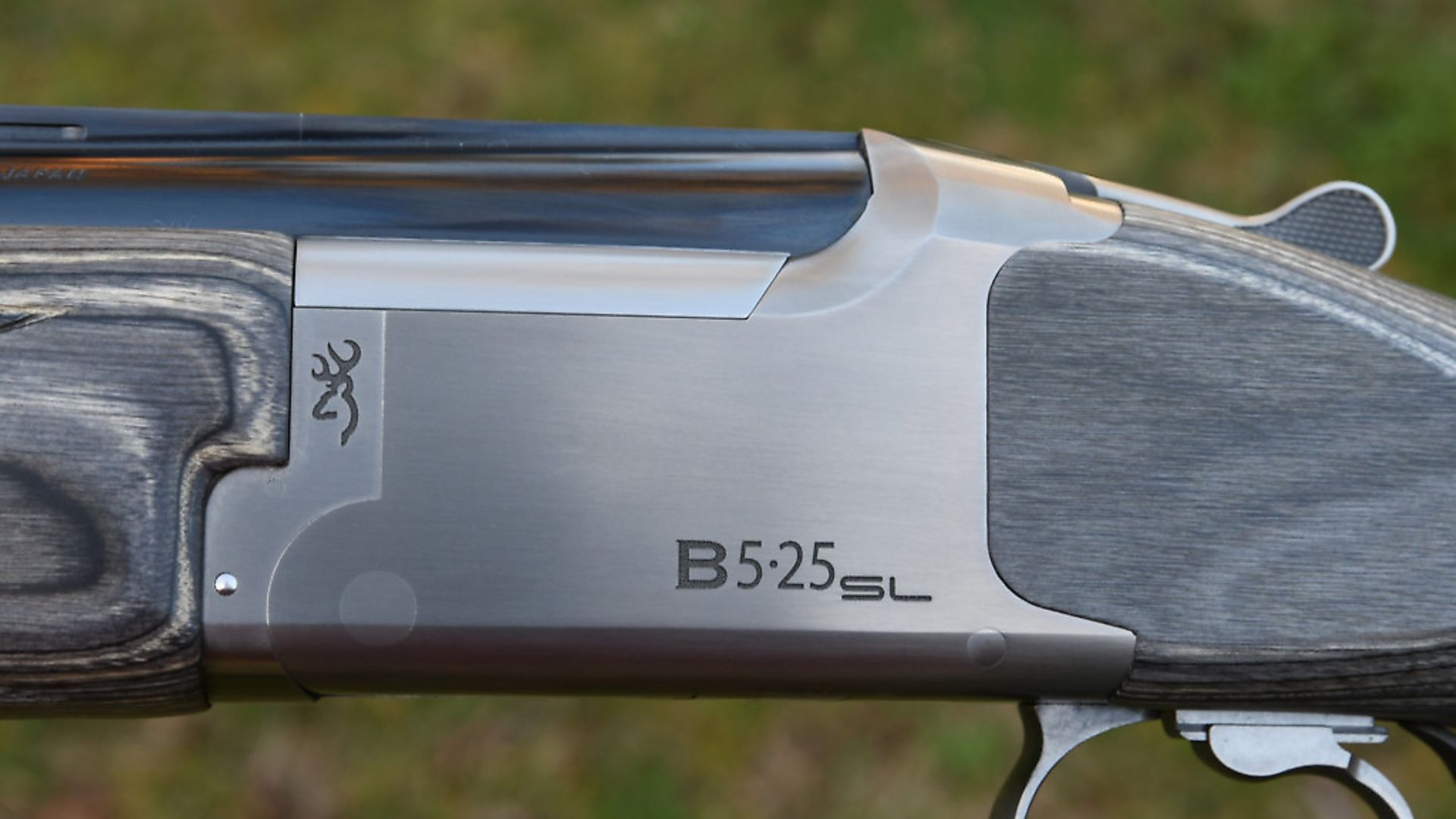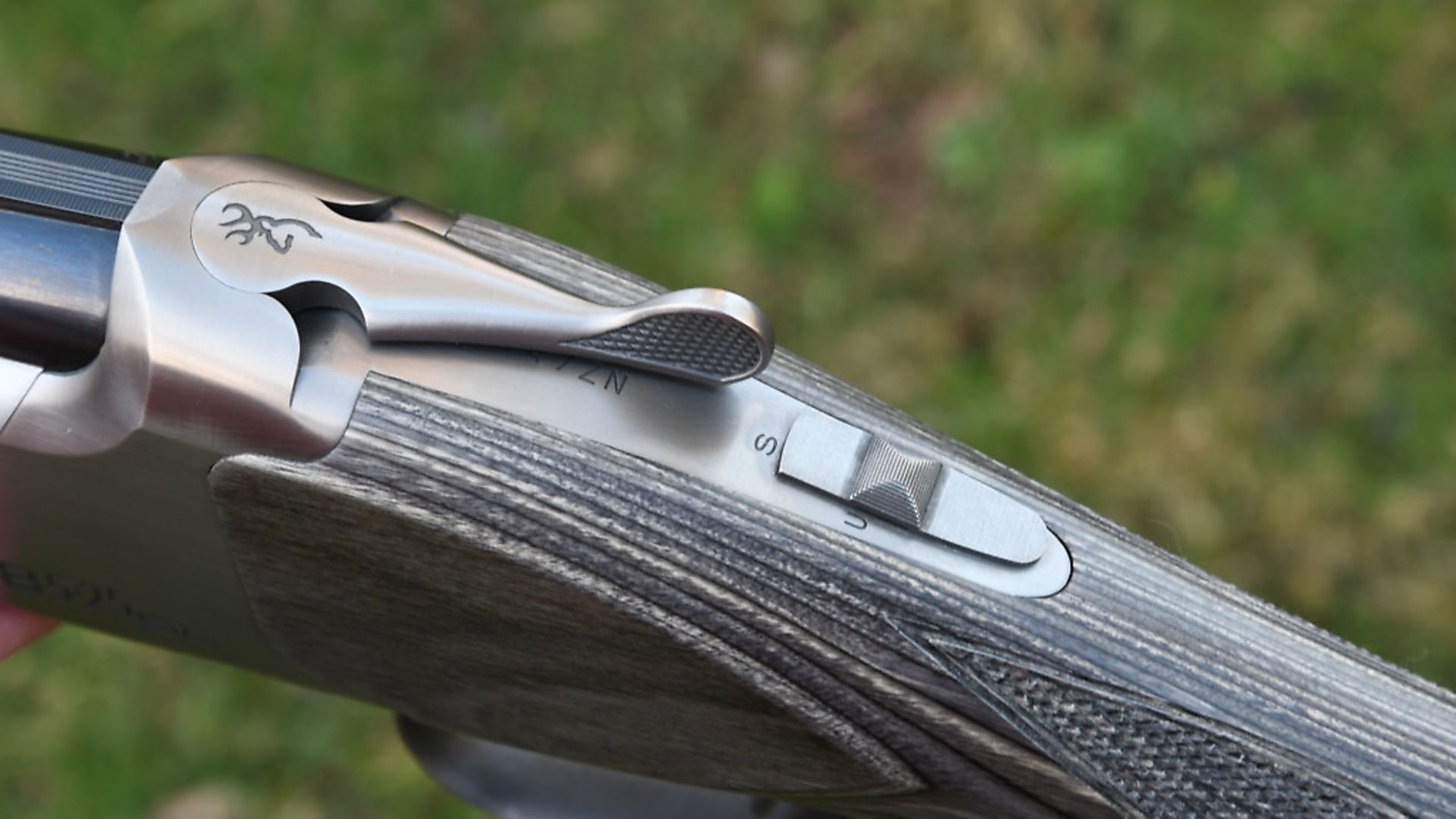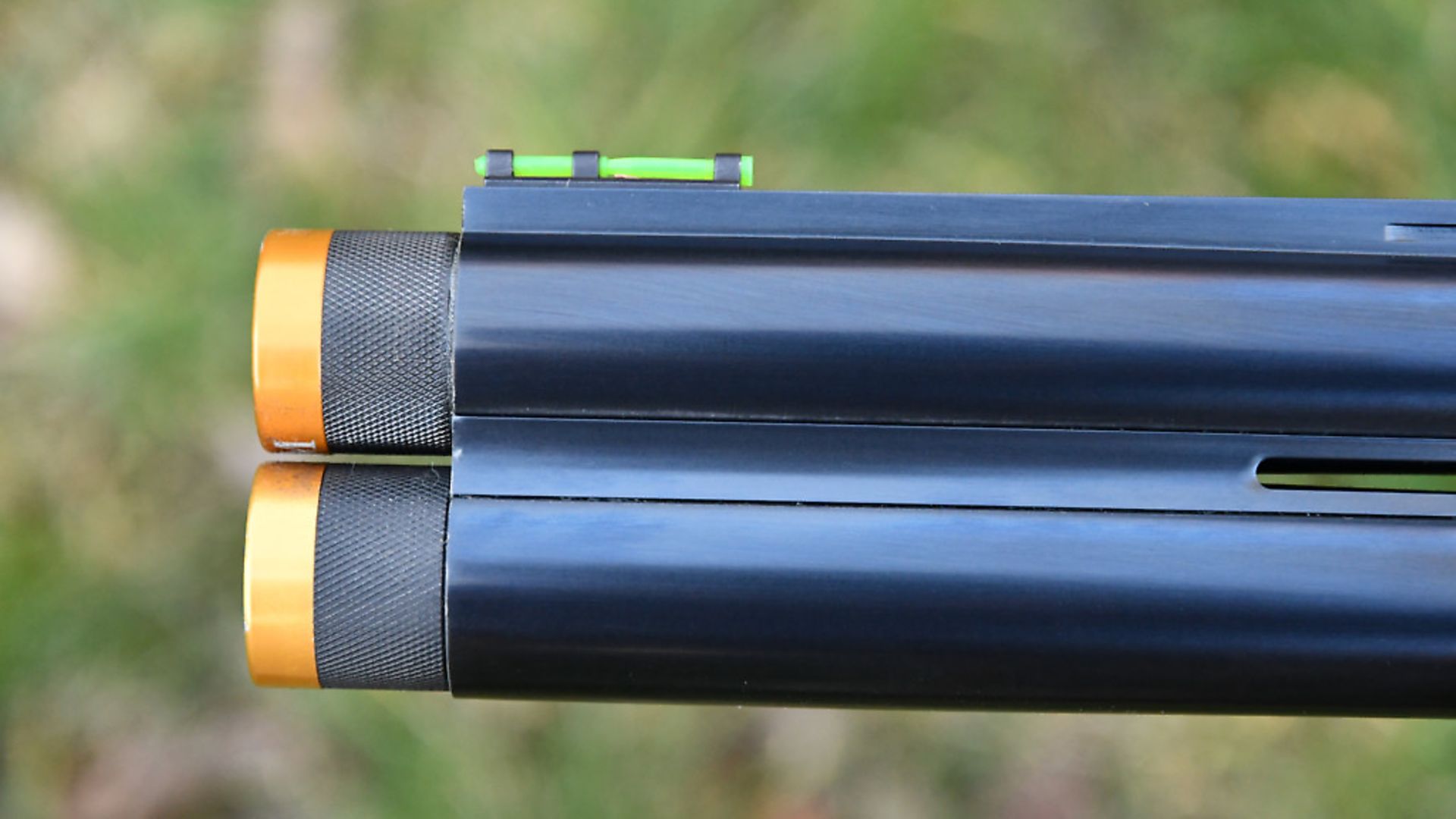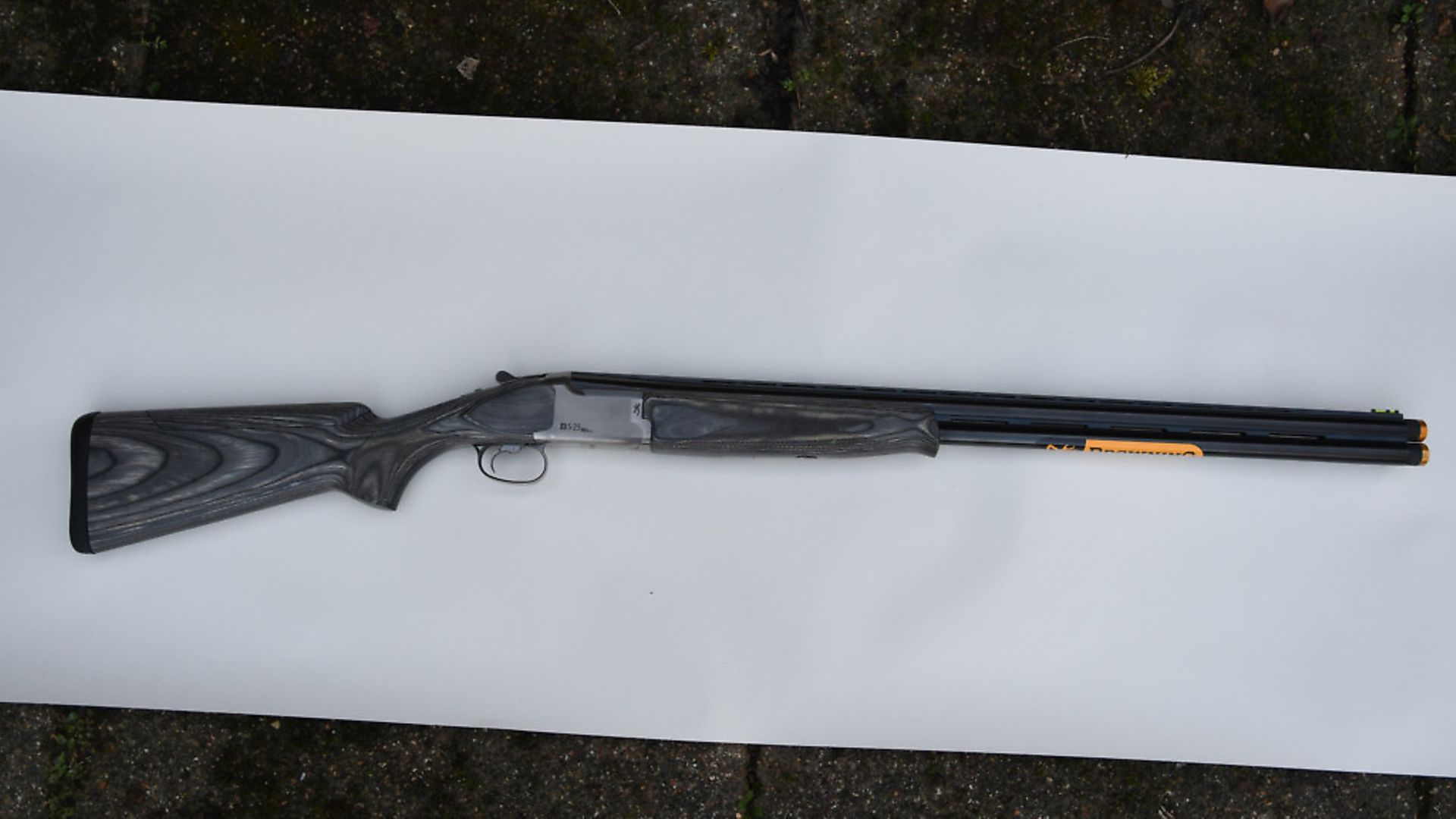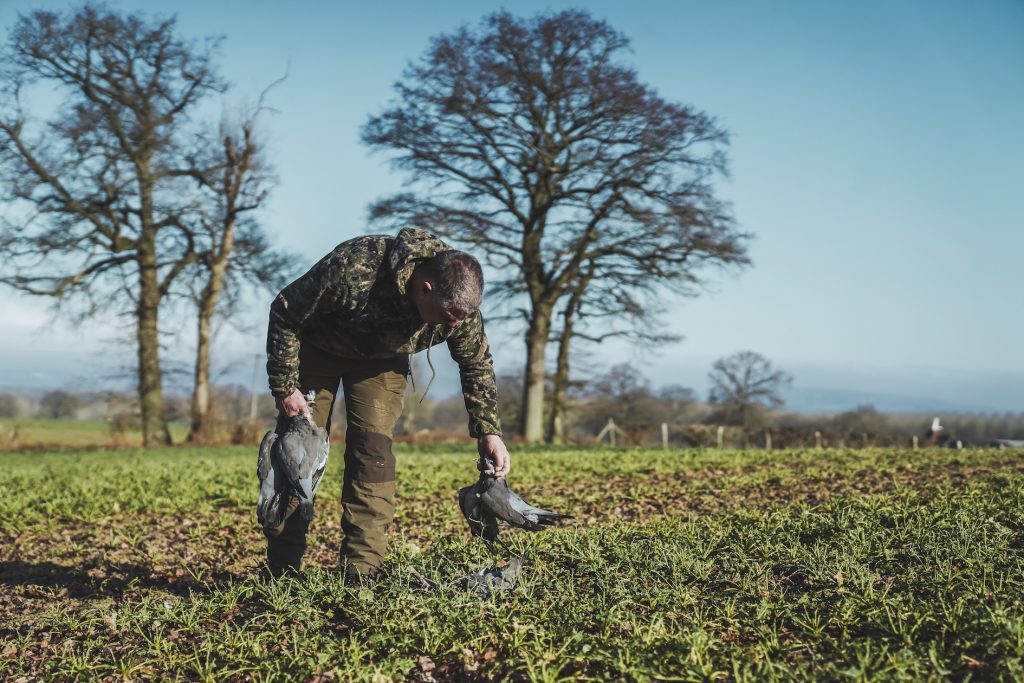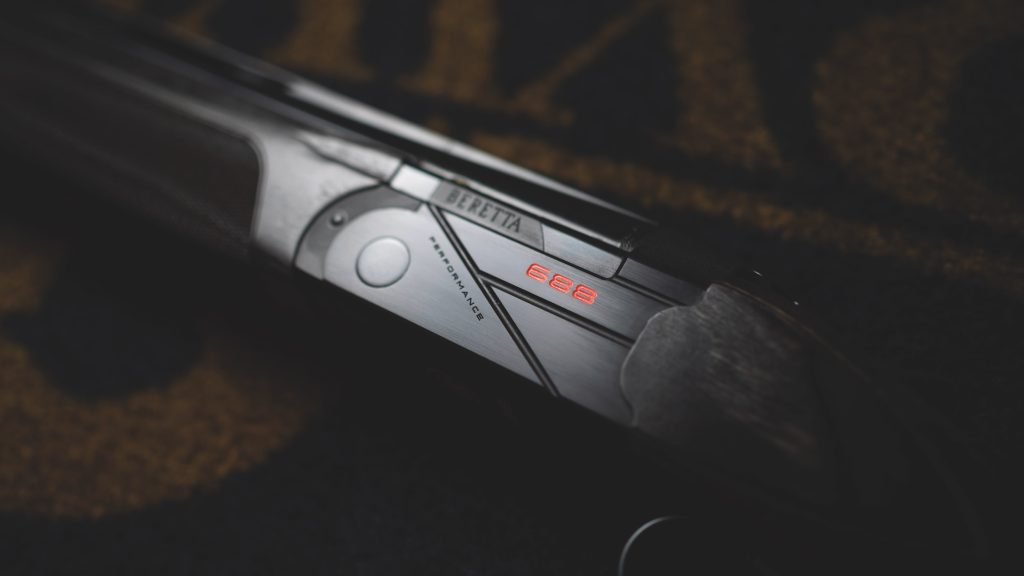★ Win a Schöffel Country shooting coat for everyone in your syndicate worth up to £6,000! Enter here ★
Browning 525 LS – tried & tested
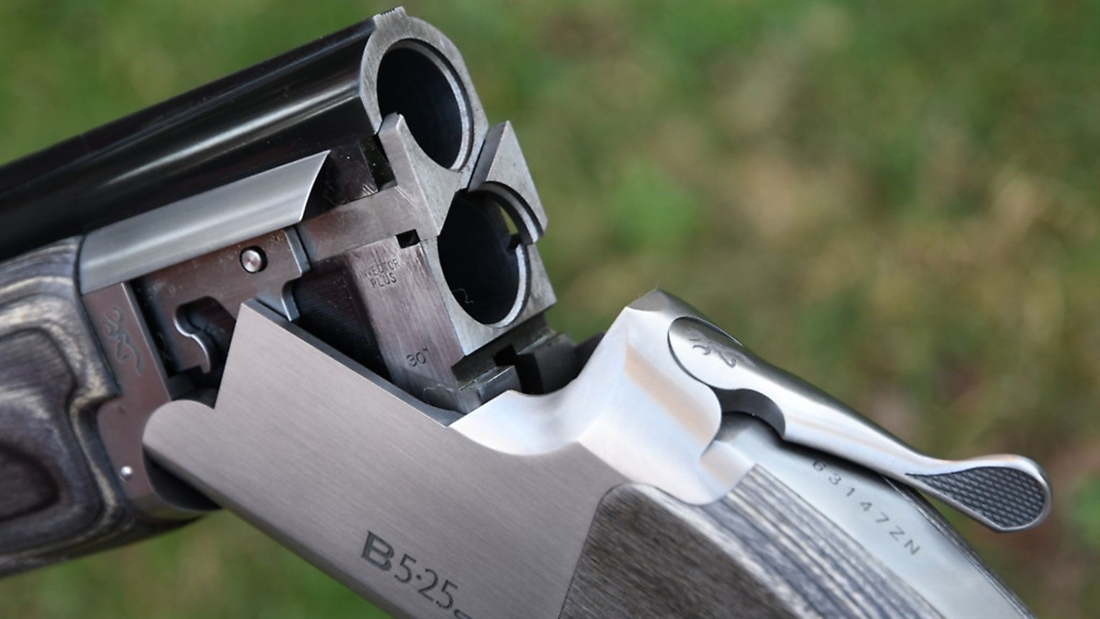
This modernistic, ideally configured Browning 525 LS handles beautifully, and tester Mike Yardley finds he simply cannot miss a target with it in this detailed review
BROWNING 525 SL – IN BREIF REVIEW
WE LIKE: The stock shapes and purchase they create; The excellent shooting qualities; The value for money
WE DON’T LIKE: You either like the aesthetics of the laminate or you don’t. I did
TECH SPECS – BROWNING 525 SL
Make/Model: Browning, 525 SL
Action: modified B25
Barrels: 30″
Chambers: 3″ (76mm)
Rib: 10mm ventilated
Chokes: Midas Extended (4 supplied)
Weight: 8 ¼ pounds
RRP: £2,000 WWW.BROWNING.EU
BROWNING 525 SL – IN DEPTH REVIEW
This month’s test gun is a smart new clay buster from Browning, a laminate stock version of the popular and affordable 525. It is called the SL and first impressions are very good.
The aesthetic – silver-finished action with blue laminate stock – is something you will love, tolerate or hate. I think it looks (let me choose my word carefully) cool. There are good reasons for using laminate on a competition gun, not least because it is an especially stable material, if a little heavier than natural wood due to the glue. This can be an advantage in a competition application where a little extra weight may be a bonus.
The SL was sent to me after a brief conversation with the Browning boys in Belgium about an “interesting new model” in the 525 range. I didn’t really know what to expect and forgot about the chat, so I was happily surprised when the special delivery parcel arrived from the continent. Within it was a modernist 30″ sporter (a 32″ version of the SL is available too, but there is currently no 28″ option as far as I am aware).
The 525 does not need much introduction; it is a hugely popular gun based on a well-proven action. This one is designated a sporter with its 10mm rib and adjustable laminate stock. It boasts back-bored barrels and an InflexII soft polymer recoil pad.
It comes in a black ABS travel case (which may be locked with padlocks for airline use). Inside, you will find two extra Midas extended Invector Plus chokes (the gun comes with four in total), a choke key, trigger lock, a couple of Allen keys and a comb adjuster.
The quality of finish is excellent as one expects from Miroku (who, of course, make the 525 and 725 for Browning in Japan). First-class wood-to-metal fit is evident, and I liked the lustrous blacking and the plain, less-is-more unengraved action. Looking at the barrels, these are monobloc (as all Japanese-made Brownings have been since halfway through the 425 production) and bear Belgian proof marks for 3″/76mm cartridges. The SL is steel shot-friendly too.
Both barrels are marked 18.7mm which equates to .736 in real money. This is quite wide, but would be my choice in a clay gun using plastic wadded cartridges with expanding skirts. Over-bored guns can create an issue with light fibre-wadded cartridges.
For game guns, there is something to be said for a tighter bore which may also increase penetration. On a clay buster, though, I think 18.7mm is ideal (and I will live with it in the field too).
Forcing cones here are not excessive. Combine very long cones with wider bores and you can get pressure problems with some cartridges. I once experimented by over-boring a gun to about 0.740″ and extending the cones to 3″. On a very cold day, it did not perform well with light payload fibre wads. The combination of cold weather, a wide bore, long cones, a light load and fibre wads (which do not seal the bore as efficiently as skirted plastic) just did not do the business.
Moving on to the woodwork, the butt, ignoring its useful adjustment feature, is of a form I especially like. It’s a good length at just over 14¾” (375mm) and finished with a soft polymer pad that isn’t just decorative.
Measurements were just about ideal for my 5’11” Mr Average frame. The grip shape is especially good – I love the Browning shape. Depth is even throughout its length and this allows for effective muzzle control in the mount and swing and also helps to control recoil.
The tulip/schnabel fore-end is not my favourite but it was fine for its type and typical of the marque. The stock, with comb down, measured about 23/8″ for drop at heel (and about 1½” at the front of the comb). This creates a sensible starting point for most people. The chequering on the gun was nicely executed, the borders were better than some recent Browning/Mirokus I’ve seen. I presume it is laser cut – it feels especially good in the hand and purchase is excellent.
TECHNICAL
The gun that inspired it – the Browning B25 – has been in production for almost a century. Miroku simplified it slightly, dispensing with an attached fore-end to ease production, and have been making it for themselves and Browning in this form for about 50 years.
The B525, like the newer B725 and the orginal B25, puts the barrel lumps beneath the chambers and includes a full-width hinge pin rather than opting for trunnion hinging as seen in Beretta and other rivals.
The bolting systems of the Browning and Beretta are different too. Brownings/Mirokus have a wide, flat bolt that engages slot bites beneath the bottom chamber mouth (an idea copied in the old Winchester 101 and other simplified versions of the basic B25 design such as the even older Nikko). The Beretta has conical bolts emerging from the breech-face which locate in small socket bites either side of the top chamber mouth.
Ejector work is also different. Beretta ejectors are driven by coil springs in the barrel monobloc. Browning and Miroku opt for hammer ejectors in the fore-end (also powered by helical springs).
HOW DID THE BROWNING 525 SL SHOOT?
This test took place at the West London Shooting Grounds, an establishment that I have been visiting – and I am not sure I want to disclose this – for almost 50 years! Michael and Allen Rose taught me to shoot there and, later, to instruct. I was focusing on another gun the day I shot the SL – a marvellous new Rigby side-by-side. So, the more pedestrian Browning was not immediately the star of the show. The new Rigby was brilliant (and a mere £95K), but the SL also proved to be an outstanding gun. Thirty-inch 525 sporters are usually good all-rounders. This one weighing in at a bit over 8lbs and equipped with back-bored barrel and Midas Invector Plus long chokes as noted, was exceptionally forgiving in use and comfortable to shoot too. Probably the most comfortable 525 that I have shot. The stock shapes were excellent too and gave great purchase and control. I felt very confident using it on the West London towers. At the price, I can’t really fault the SL. I had a terrible cold the day I shot too and in spite of sounding as if I might croak at any minute struggled to miss anything with the new gun even though I didn’t bother to take advantage of the adjustable comb to perfect the fit. Bottom line? A really good gun and well priced.
Related Articles
Get the latest news delivered direct to your door
Subscribe to Sporting Gun
Subscribe to Sporting Gun magazine and immerse yourself in the world of clay, game and rough shooting. As the leading monthly publication for passionate shooters at all levels, Sporting Gun delivers expert advice, practical tips and in-depth reviews to enhance your skills and enjoyment of the sport.
With features ranging from gundog training to pigeon shooting, and wildfowling to equipment recommendations, you’ll gain valuable insights from professional shooters and industry experts. A subscription not only saves you money on the cover price but also includes £2 million Public Liability Insurance, covering the use of shotguns, rifles and airguns for both recreational and professional use.
